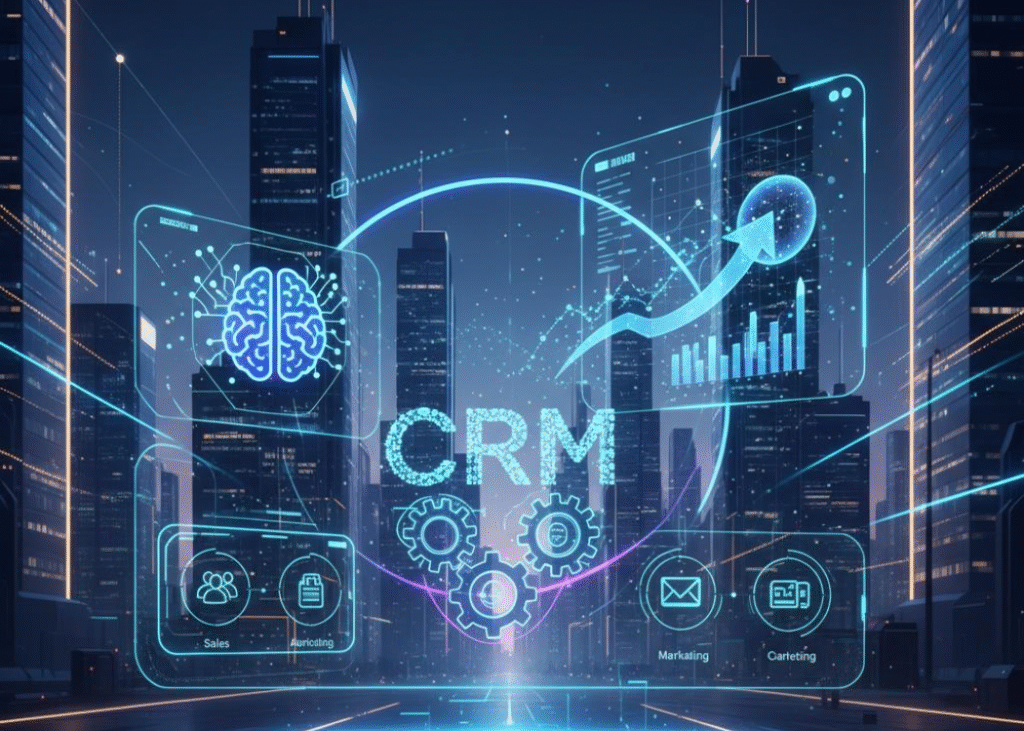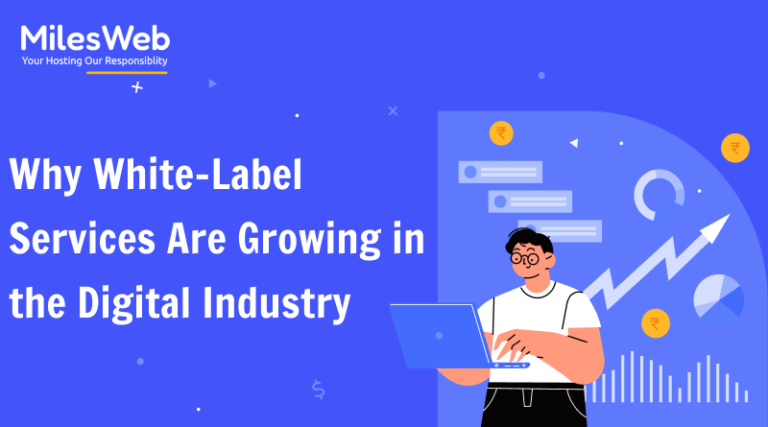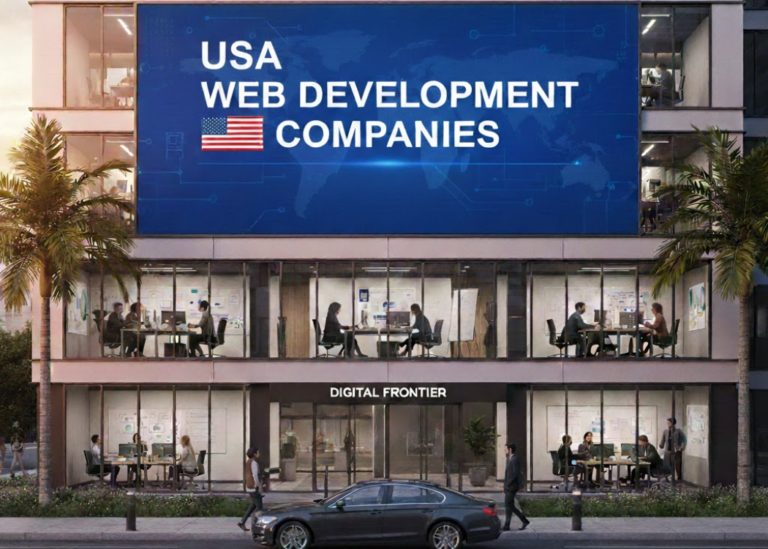The landscape of Customer Relationship Management (CRM) is evolving faster than ever before. What began as a digital address book for storing customer information has now grown into a dynamic system that fuels sales growth, marketing intelligence, and customer loyalty. The rise of Software-as-a-Service (SaaS) has accelerated this evolution by making CRM platforms more accessible, agile, and intelligent.
Today, the real transformation lies in the integration of artificial intelligence, automation, and predictive intelligence within SaaS CRM systems. Together, these innovations are shaping a new generation of tools that do not just manage customer data but anticipate needs, personalize communication, and empower organizations to make data-driven decisions that lead to measurable results.
The SaaS Revolution in CRM
The introduction of SaaS CRM was a turning point for businesses across industries. By moving CRM operations to the cloud, organizations could eliminate the need for expensive infrastructure, reduce maintenance costs, and enable teams to collaborate seamlessly from anywhere.
SaaS CRMs offer real-time access, faster deployment, and continuous updates, ensuring that businesses always operate on the latest technology stack. Unlike traditional on-premise systems, SaaS CRMs are designed for flexibility, allowing integrations with marketing tools, analytics platforms, and communication systems without complex setup.
More importantly, SaaS CRM systems have become the foundation for digital transformation initiatives. They empower companies to centralize customer data, track every touchpoint, and leverage insights to enhance satisfaction, retention, and long-term loyalty.
Automation: Streamlining Efficiency Across Every Function
Automation has become the heartbeat of modern CRM. It removes the friction of repetitive administrative tasks, allowing teams to focus on building meaningful connections rather than managing spreadsheets and manual workflows.
From sales to service, automation within SaaS CRM platforms enhances productivity across every department:
- Lead Assignment: Automatically routes leads to the right sales representatives based on territory, expertise, or opportunity size.
- Follow-Up Reminders: Ensures no customer interaction is missed, improving conversion rates and consistency.
- Email Campaign Automation: Schedules personalized campaigns based on customer engagement levels.
- Customer Support Workflows: Instantly creates service tickets, categorizes issues, and assigns them to appropriate agents.
This level of automation not only saves time but also ensures that each customer receives timely, consistent communication, which is key to building trust and credibility.
Predictive Intelligence: Turning Data into Strategy
In the digital age, data is abundant, but actionable insights are what truly drive success. This is where artificial intelligence in CRM comes into play. It uses advanced algorithms and analytics to interpret customer data, forecast future behaviors, and recommend actions that increase efficiency and profitability.
For instance, predictive intelligence can identify patterns such as:
- Which leads are most likely to convert into customers.
- Which clients are at risk of churn based on declining engagement.
- What product or service a customer might need next.
- When is the optimal time to contact a lead or send a campaign.
By anticipating customer needs before they are expressed, businesses can shift from being reactive to proactive, offering solutions that feel intuitive and timely. Predictive insights also guide marketing teams in creating more targeted campaigns, improving ROI while reducing wasted ad spend.
Delivering Personalized Customer Experiences
In today’s customer-first marketplace, personalization is the true differentiator. Modern SaaS CRM systems combine automation and predictive analytics to deliver a level of personalization that was once impossible at scale.
Every customer leaves behind a digital trail, including purchase history, browsing habits, preferences, and interactions. By analyzing these signals, businesses can tailor their outreach to each individual’s needs. For example:
- Recommending products similar to past purchases.
- Sending timely renewal reminders or exclusive offers.
- Adapting marketing messages based on customer engagement patterns.
Personalization goes beyond convenience; it builds emotional connection. Customers are more likely to engage with brands that understand their needs and respond accordingly. Intelligent SaaS CRMs make this possible by seamlessly integrating automation, data analysis, and predictive modeling to create experiences that feel human, even when driven by technology.
CRM as a Catalyst for Collaboration
An often-overlooked advantage of SaaS CRM platforms is their ability to foster collaboration across teams. Traditional CRMs operated in silos where sales, marketing, and service teams worked separately, often with fragmented data.
Modern SaaS-based CRMs bridge that gap by connecting all departments on a single, unified platform. Sales can view marketing campaign results, marketing can track customer service trends, and management can assess the overall customer journey from one dashboard.
This integration ensures that every team works with consistent data, enabling faster decision-making and a more cohesive customer experience. When everyone in the organization shares access to real-time insights, collaboration transforms into strategic execution.

Integrating Predictive Analytics for Smarter Decision-Making
The future of CRM lies in predictive analytics, a technology that empowers businesses to make informed decisions based on trends and probabilities rather than guesswork.
With predictive models, companies can:
- Accurately forecast demand and sales outcomes.
- Allocate resources more effectively.
- Identify market opportunities before competitors.
- Reduce customer churn through early intervention.
For example, if data indicates that a customer has not engaged with a brand for several weeks, the CRM can trigger an automated re-engagement campaign offering personalized incentives. Predictive insights thus create a continuous feedback loop where data drives action and action generates more data to refine future predictions.
The Role of Data Privacy and Ethical Intelligence
As SaaS CRM Tools handle massive amounts of customer data, ensuring privacy and ethical use of information has become a top priority. Trust remains the foundation of every customer relationship.
To maintain integrity, businesses must adopt responsible data management practices:
- Ensure transparency about how customer data is collected and used.
- Comply with international regulations such as GDPR and CCPA.
- Implement strong security protocols for data storage and transmission.
- Regularly audit systems to prevent misuse or bias in predictive models.
Leading CRM providers are now embedding ethical intelligence frameworks that align technological advancement with responsible data stewardship. The future of CRM innovation must always balance intelligence with integrity.
Driving Business Growth Through Intelligent CRM Systems
The fusion of automation and predictive intelligence within SaaS CRMs delivers measurable business outcomes across all verticals. Some of the most impactful benefits include:
- Increased Revenue Efficiency: Smarter lead scoring and opportunity management enable sales teams to close deals faster.
- Cost Reduction: Automated processes lower operational costs and eliminate redundancy.
- Enhanced Marketing Performance: Predictive segmentation ensures marketing efforts reach the right audience at the right time.
- Customer Retention: Insights into churn patterns allow businesses to take proactive measures to retain clients.
- Scalable Growth: Cloud-based CRM systems grow alongside business needs without infrastructure limitations.
By combining data-driven intelligence with customer-centric design, these systems create a strategic advantage that extends far beyond technology.
Empowering the Human Element
Even as technology becomes more advanced, the human element remains central to customer relationships. Intelligent CRMs are designed not to replace human interaction but to enhance it. By automating routine processes and offering deeper insights, they allow teams to focus on creativity, empathy, and connection, qualities that machines cannot replicate.
When customer-facing teams have the right data at the right time, they can craft personalized, authentic conversations that resonate with customers. This balance of human understanding supported by intelligent automation defines the most successful CRM strategies of the modern business world.
Looking Ahead: The Future of SaaS CRM
The future of SaaS CRM is intelligent, predictive, and interconnected. Businesses are moving toward ecosystems where CRM platforms serve as command centers for all customer engagement activities, integrating marketing, analytics, support, and sales into one cohesive flow.
As automation becomes more sophisticated and predictive models evolve, CRMs will continue to refine personalization and efficiency. Voice-based commands, sentiment analysis, and real-time behavior tracking will further enhance how businesses anticipate customer needs and build lasting loyalty.
Organizations that adopt intelligent SaaS CRM solutions early are positioning themselves for long-term success. They will not only manage customer relationships but nurture them through insight, empathy, and foresight, turning every interaction into an opportunity for growth.
Conclusion
The transformation of CRM through SaaS, automation, and predictive intelligence represents a defining shift in how businesses engage with customers. It is no longer about storing data; it is about understanding it, learning from it, and using it to create meaningful experiences.
Enterprises that embrace this new generation of CRM technology will gain a significant competitive edge. With automation ensuring operational excellence, predictive analytics driving strategy, and human insight guiding communication, the next frontier of SaaS CRM promises smarter, faster, and more connected customer relationships.
The future belongs to organizations that view CRM not as a tool but as a dynamic ecosystem that learns, adapts, and evolves alongside their customers.






